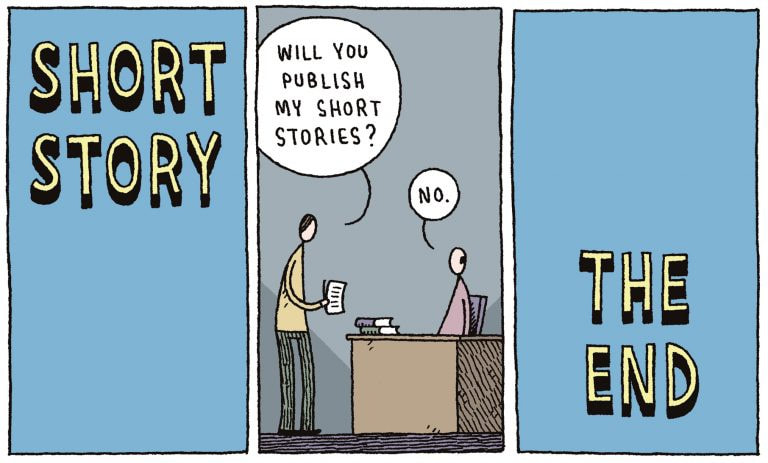|
A couple of weeks ago, The Atlantic published a new list of “The Great American Novels.” It’s full of both expected classics as well as both good and/or weird surprises. There is no way to do these lists without the former and no point in doing them without the latter. Overall, I think The Atlantic did a fine job. I appreciated the inclusion of graphic novels and especially the genre books. What’s American literature without science fiction, horror, and hardboiled detective fiction? Excluding them would be like excluding Westerns and rom coms from a list of Great American Movies. A couple of thoughts rolled through my brain. First, these lists are entirely subjective. The term “greatest” is so fraught with bias, it’s barely worth mentioning. The second thought I had while reading the list was… where are the short stories? Yes, I get that the list was restricted to novels. That’s fine and good. But reading the article made me think about how central the short story is to literature. Indeed, it might be the quintessential western literary form. Can you tell the story of American literature without Raymond Carver, Flannery O’Connor, Donald Barthelme, Ted Chiang, John Cheever, Edgar Allan Poe, or Lorrie Moore? In Canada, we have major literary talent who wrote exclusively in short story form (Alice Munro) and many who still whip up a great short story between best-selling novels (Atwood). Among younger writers, the short story form is as alive as ever: Kim Fu, Norma Dunning, and my personal favourite, Alexander MacLeod. This is really less a critique of The Atlantic’s list than a thought about literature in general and perhaps a lament for the declining role of the short story. Because it is hard not to notice the shrinking prestige of short stories, even as the form is as vibrant and alive as ever. Part of this has nothing to do with literature, per se. The past few decades have seen the much-discussed destruction of magazines and newspapers. Many have disappeared and those that survive depend on online clicks. There’s not much space for short stories, and even less money for short story authors. But there are other factors. I often wonder what things would look like if the big literary awards followed the lead of the genre awards and included short story categories. The Pulitzer commands attention, readership, and press coverage. Short story collections theoretically compete for the Fiction category, but in practice almost never win. Canada fares better than the U.S. in that our most prestigious award, the Giller Prize, can be awarded to a novel or short story collection published in English. And it’s only fair to give a shout-out to CBC Books who have dedicated May as Short Story Month, a celebration of Canadian authors and publishers who put these collections out. There is also a contest solely for short story writers that helps both established and new writers from across Canada. However, the larger problem for the short story is that big publishers have increasingly decided not to publish them. It used to be quite common to start your career with a two-book deal, one story collection and one novel. Back then, there was an idea an author would stay with a publisher and that publisher would build their whole career. Today, it’s more common for the big publishers to allow authors—who still write and love short stories—to have a collection on a small press and then snatch them up for a novel. (This is part of why some call small and indie presses the “minor leagues” that the big publishers poach for talent.) There is doom loop aspect here. Because big publishers don’t publish stories as often, they don’t have big publicity behind. Because short stories are not awarded as often, they do not get the coverage that awards bring. Because they don’t have the publicity dollars or awards coverage—and tend to get left off listicles—they don’t sell as many copies. Thus justifying not publishing, awarding, or listing them. I honestly believe there is more appetite for short stories than publishers might realize. And, while I don’t want to call any authors out, increasingly many “novels” are simply lightly fixed-up short story collections. Publishers and readers seem to simply want to see the word “novel” on the manuscript even if it is a bunch of stories. (Ditto novellas, a category that has functionally disappeared as publishers simply put them out as “novels.”) Hell, one might even argue a few of The Atlantic’s picks are, in truth, a bunch of short stories in a novel trench coat. Anyway, I don’t know how to solve these issues. But next time you’re in a bookstore, give a short story collection a try. And the next time you’re writing a listicle, remember novels aren’t all there is. And in the meantime, happy reading. Joni
0 Comments
|
Archives
July 2024
Categories |

 RSS Feed
RSS Feed
